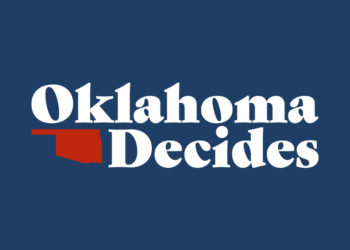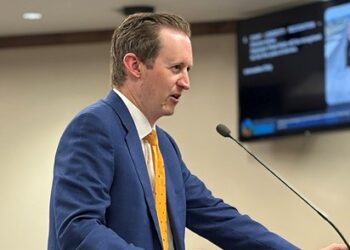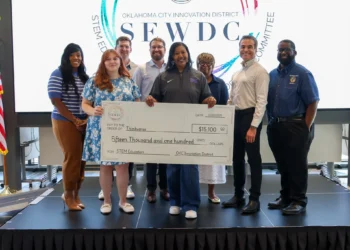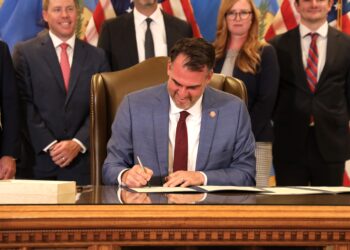This editorial was written by Chad Warmington, President and CEO of The State Chamber of Oklahoma
In Oklahoma, we know how to keep score. Whether it’s football Saturdays, March Madness, or the latest SEC and Big 12 rankings, we follow the standings, debate the polls, and demand excellence from our teams. Finishing last place in either conference would spark outrage. Coaches would be fired, strategies overhauled, and fans would never settle for it.

But when it comes to something far more important, our children’s ability to read, we’re sitting at the bottom of the standings. And unlike sports, there’s no public outcry.
The latest results from the National Assessment of Educational Progress (NAEP) paint a stark picture. Only 23 percent of Oklahoma’s fourth graders read at or above the proficient level. That ranks Oklahoma students last against other states in the Big 12 and the SEC, two conferences where Oklahomans are proud to compete on the field and on the court.
– In the SEC, states like Mississippi and Louisiana are outperforming us with 32 percent proficiency, while Florida and Kentucky lead at 33 percent. Oklahoma’s 23 percent puts us dead last.
– In the Big 12, Colorado and Utah lead the way at 36 percent, followed by Florida (33 percent) and Ohio (32 percent). Again, Oklahoma’s 23 percent places us at the very bottom of the conference standings.
If these were sports rankings, the outrage would be deafening. But because these are reading scores, we shrug. We’ve grown complacent, and that complacency is costing our kids and our future.
The comparison with Mississippi is especially telling. In 2013, both states passed laws aimed at boosting reading sufficiency by the end of third grade. But in 2016, Oklahoma weakened its law while Mississippi stayed the course. The results could not be clearer: Mississippi now ranks near the top nationally in reading improvement, while Oklahoma has slid all the way down to 47th. Their discipline produced results. Our retreat set us back.
This isn’t just an education problem—it’s an economic one. At The State Chamber of Oklahoma, we hear the same concern every year in our business leaders poll: workforce quality. For four years running, it has been the number one issue facing Oklahoma businesses. Employers can’t grow if they can’t find workers with the skills to succeed. And the skills gap starts early. Children who can’t read by fourth grade are far less likely to finish high school, pursue higher education, or thrive in today’s economy.
We don’t accept mediocrity in sports for long. Why have we been willing to accept it in education outcomes for decades?
The good news is, we can change it. Other states have proven it’s possible. As we prepare to release The State Chamber’s strategic vision plan, reading is one of the key areas where we will push for bold action. Just like in sports, if we want to climb out of last place, we need a strategy, investment, and relentless focus on results. Our kids deserve it, our workforce depends on it, and our economy cannot thrive without it.
Oklahoma doesn’t aspire to be last place in anything. It’s time we stopped tolerating it in the area that matters most.
















